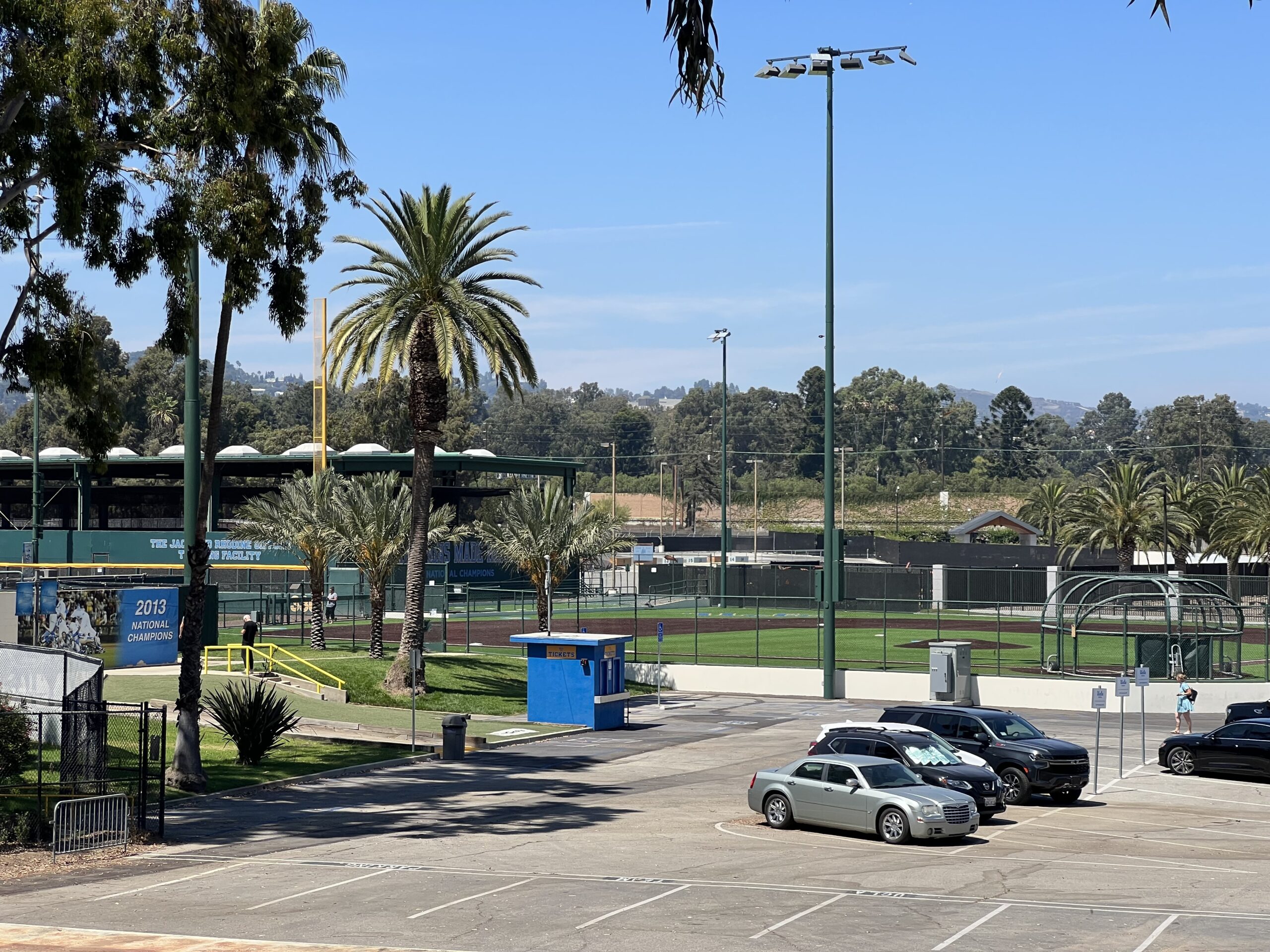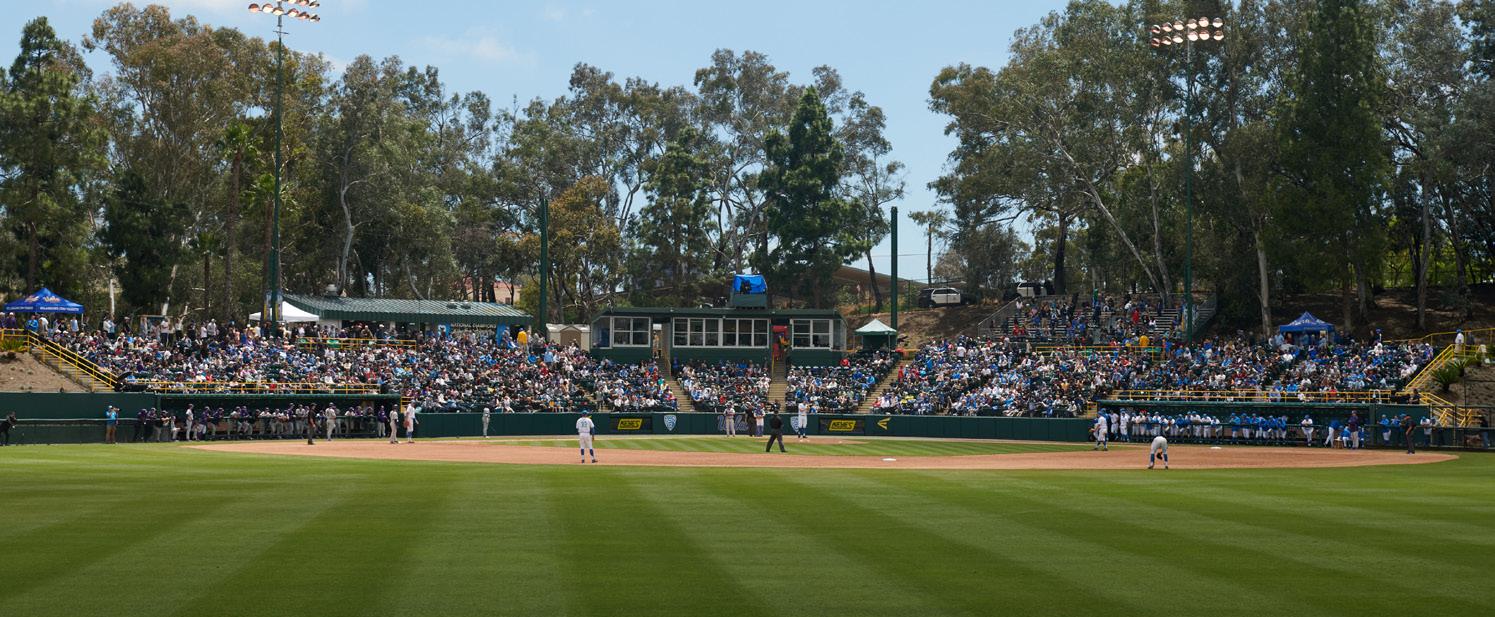(This article first appeared in the Westside Current and is published with permission.)
By JAMIE PAIGE
On October 23, veterans advocating for housing at the West Los Angeles Veterans Affairs campus secured a legal victory as a federal judge rejected UCLA’s bid to delay construction on the site. As the long-running legal battle continues, the case will return to court on Friday, October 25, where Judge David O. Carter will further weigh the future of the 388-acre property originally dedicated to house and care for veterans.
The case before Carter focuses on allegations that the Department of Veterans Affairs (VA) has failed in its responsibility to provide housing for veterans, instead leasing large portions of the land to commercial enterprises and institutions like UCLA and Brentwood School.
The lawsuit, brought by Public Counsel, the Inner City Law Center, and private law firms on behalf of homeless veterans, took a significant turn in September when Judge Carter ruled that the leases with UCLA and Brentwood School were illegal.
According to court records, these leases did not meet the legal requirement of primarily benefiting veterans—a violation of the 2016 West Los Angeles Leasing Act. UCLA has since appealed the decision, but the case highlights a decades-long struggle over the proper use of the historic land.
At its peak, the West LA VA campus housed nearly 3,000 veterans. However, after the 1971 Sylmar earthquake devastated many of the campus buildings, more than 1,400 veterans were evicted. The buildings were never repaired or converted back to housing, and the VA began leasing portions of the land to non-veteran entities even as the homelessness crisis among veterans in Los Angeles grew. Today, roughly 3,000 veterans are homeless on the streets of Los Angeles—the same number that once lived on the VA campus, underscoring the tragic irony of the situation.
A significant development in the case occurred when Judge Carter issued an emergency order on October 7, mandating the immediate construction of temporary veterans’ housing on the VA campus. This order includes using parking lots adjacent to UCLA’s Jackie Robinson Stadium, which has been closed as a result of the court’s ruling. “With fall and winter approaching and with thousands of homeless veterans still living on the streets, an emergency exists,” Carter wrote, emphasizing the urgency of the situation.
UCLA, however, sought to intervene and delay the construction of the temporary housing units. Attorneys for the university filed their motion after veterans’ claims challenging UCLA’s lease had already been litigated, arguing that relief ordered by the court would burden the university and delay other plans. But on Wednesday, Carter rejected UCLA’s bid, ruling that the university’s motion came too late and would only stall efforts to address the housing crisis.
“Allowing a late-stage intervention at this point would undermine a carefully negotiated plan and harm those who stand to benefit from the relief already underway,” Carter wrote in an 18-page order denying UCLA’s motion. “This harm is not just to the parties, but to veterans who have been suffering from mental and physical disabilities, homelessness, and 13 years of litigation.”
The judge criticized UCLA for seeking to relitigate issues that had already been resolved. “UCLA seeks to reopen a case that has already been litigated and stall the collaborative process the parties have tediously worked towards,” Carter wrote. He added that the university’s delay prejudices disabled veterans, including those who brought the lawsuit and others who stand to benefit from increased housing on the VA campus.
The developments stem from a month-long trial in August, during which a group of unhoused veterans with disabilities sued the VA over its land-use agreements. The veterans argued that they were entitled to housing on the VA campus, but private leases, including those with UCLA and Brentwood School, prevented the construction of much-needed housing. Judge Carter, a Vietnam War veteran himself, found in favor of the veterans, ruling that the land must be used primarily to serve veterans.
The VA had argued during the trial that it was out of space on its campus, claiming that its promise to open 1,200 housing units by 2030 was the best it could do. VA attorneys warned that additional relief ordered by the court would strain its resources and complicate its ability to address veteran homelessness effectively. Carter, however, rejected these arguments, finding that veterans are entitled to more than 2,500 units of housing on the campus.
In his ruling, Carter directed the VA to build 750 units of temporary housing within 18 months and to add 1,800 permanent units to the 1,200 already planned. He also ordered the VA to begin devising “exit strategies” for tenants like UCLA and Brentwood School to ensure that the land is restored for veteran-focused purposes.
Mark Rosenbaum, Director of Public Counsel’s Opportunity Under Law program, has been a vocal critic of UCLA’s actions. He characterized the university’s lease as part of “one of the great land scandals in our nation.” Rosenbaum asserted that UCLA’s primary focus was on its baseball program rather than serving veterans. “It wasn’t about earthquakes; it was about greed and putting veterans’ needs second,” Rosenbaum said. “They stole that land from veterans and used it for purposes that had nothing to do with serving veterans.”
Court records show that UCLA attempted to justify its lease by offering veterans free tickets to baseball games and other symbolic gestures, but Rosenbaum called these efforts superficial. “They built a practice field on veterans’ land and kept it secret,” Rosenbaum said, noting that the university was using land for baseball while homeless veterans slept nearby in cardboard boxes.

UCLA was allowed to construct an artificial turf baseball practice field on the VA, adjacent to the Jackie Robinson Stadium. It is unclear how this helps homeless veterans.
(Editor’s note: in a March 2023 story “Brentwood School Athletic Facilities Are Built on VA Land” Dr. Steven Braverman, the director of the West L. VA, was asked about Brentwood and UCLA leasing space on land meant for veterans.
Braverman said that the money the schools contribute was important to veterans because of a 1958 law, that states the VA is not allowed to build housing unless it is specifically tied to a treatment program.
Braverman said the money from those schools was being used to rebuild utilities and infrastructure on the VA. Circling the News looked for the 1958 law but could not find it and contacted VA public affairs for clarification, several times, but no one has responded with the law.
CTN had reported that “UCLA signed a 10-year lease agreement [2016] to use the Jackie Robinson baseball stadium on the east side of campus. They will pay $300K rent for the stadium; they will pay $500K for a VA-UCLA Family Resource and well-being center. They will spend $250K to sponsor a homeless mental health and addiction center and $400K for a UCLA Legal Clinic for Veterans.)
Rob Reynolds, an Iraq war veteran and a key advocate for homeless veterans, emphasized the urgency of moving forward with the housing plans. “Judge Carter has ordered the construction of modular housing before the winter weather sets in,” Reynolds said. “These units will give veterans a safe place to stay while permanent housing is being developed.” The modular units, about 350 square feet each, are designed to provide essential amenities such as bathrooms and living spaces.
For Reynolds, the situation underscores the importance of housing veterans close to the VA hospital, particularly those with medical needs. “It’s crucial that those who are more disabled are housed near the VA hospital where they can access the care they need,” Reynolds said. “The longer veterans stay on the streets, the harder it becomes for them to reintegrate.”
On Friday, the court will discuss the VA’s preferred modular housing options and assess the progress made toward the judge’s mandate to provide immediate housing for homeless veterans.


BRAVO, JUDGE CARTER!